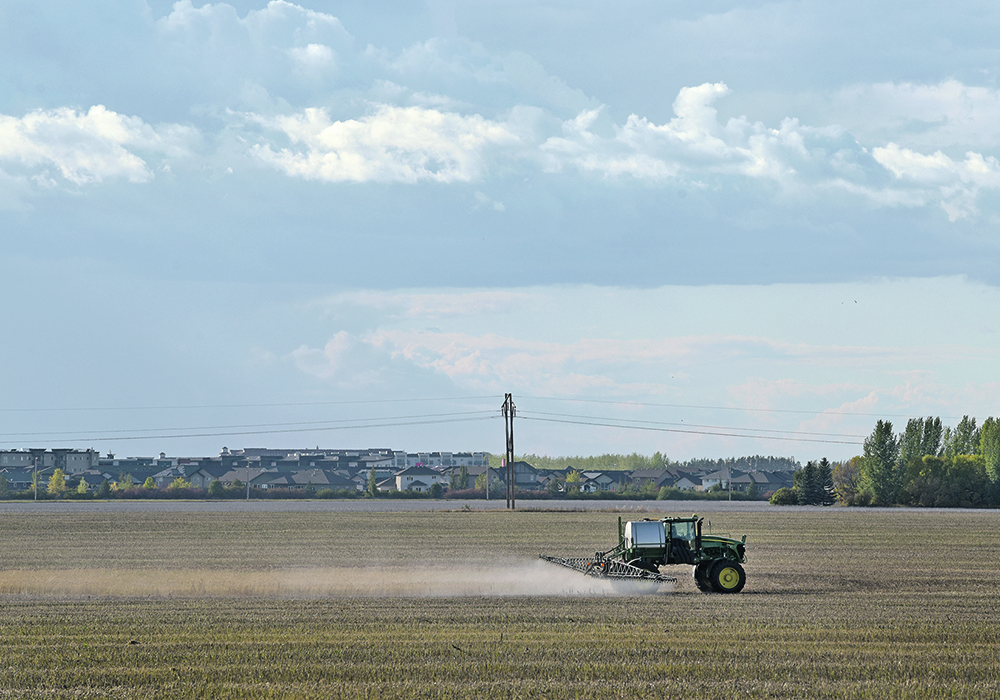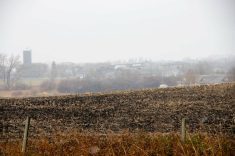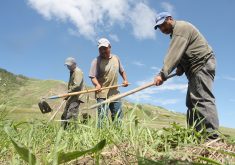For decades, a vocal minority of ideologues conflated any criticism of Canada’s immigration policy with hostility towards immigrants. This stifled the free and lively democratic debate that, while at times noisy and acrimonious, ensures government policies are subject to scrutiny from the public.
As the Trudeau government oversaw record-breaking population growth of 1.2 million in 2023, almost all of which came from immigration, this false consensus broke down in spectacular fashion.
According to a poll conducted by Abacus, 67 per cent of Canadians want lower immigration. Notably, this includes 68 per cent of native-born Canadians and 62 per cent of immigrants themselves. The same poll showed that majorities in all age groups, both sexes, all regions and all political parties felt this way.
Read Also

Kochia has become a significant problem for Prairie farmers
As you travel through southern Saskatchewan and Alberta, particularly in areas challenged by dry growing conditions, the magnitude of the kochia problem is easy to see.
Globe & Mail and National Post columnists now regularly write about how out-of-control population growth is straining hospitals, crowding schools and raising housing prices.
These are crucial points, but I wish to draw attention to an issue that is ignored: farmland loss.
Most columnists for Canada’s big papers live in urban areas, and thus the paving of farmland may not be a palpable concern. However, we ignore this issue at our peril.
Despite having the second-largest landmass in the world, just 4.3 per cent of Canada is arable. In fact, 90 per cent of us live in a snaking line of settlements within 160 kilometres of the U.S. border. The vast majority of newcomers settle in this same strip, which drives urban sprawl into adjacent rural or semi-rural areas as new houses, infrastructure and amenities are constructed.
As immigration drives up housing prices in the big cities, the flow of Canadians moving to small cities to find affordable real estate picks up. As this flow drives increased prices in those smaller cities, people flee to little towns. This endless cycle is why many small cities and towns are seeing rampant development.
As a result of this process, Ontario is losing 319 acres of farmland every day. This is the equivalent of nine family farms a week. According to the Alberta Land Institute, that province lost more than 56,000 acres of agricultural land from 2011 to 2020, and another 32,299 acres from 2021 to 2022.
In Manitoba, farmland is steadily being gobbled up around the fringes of Winnipeg as the city’s population grows. On the southwestern edge of Winnipeg, the idyllic-sounding Waverly West development is swallowing up 3,000 acres of farmland.
While estimates vary, Canada is losing 30,000 to 50,000 acres of agricultural land to urban expansion every year. According to Canadians for a Sustainable Society, which raises awareness of the environmental and social effects of immigration-driven population growth, Canada loses 530 sq. kilometres of prime farmland for every million people we add to the population.
Farmland loss can be mitigated to a limited degree by zoning protections such as British Columbia’s Agricultural Land Reserve or Ontario’s Greenbelt. Ultimately, however, urban expansion is a consequence of population growth, which in Canada is largely a consequence of immigration.
Farmland loss endangers our national security. As the world becomes a more volatile place, food security will be key to preserving Canada’s well-being and independence.
On a deeper level, we should ponder what else disappears when a farm is turned into a subdivision or shopping mall. When the countryside is paved, communities are uprooted and fragmented, and their ties to the soil are severed. Heritage is lost.
It’s time to have a serious debate about what level of immigration will allow Canada to preserve our food security and continue our long history as a farming nation in perpetuity.
Riley Donovan is a columnist and editor of Dominion Review. He lives on a small farm with his family on British Columbia’s Salt Spring Island. You can follow him on Twitter at @valdombre.

















